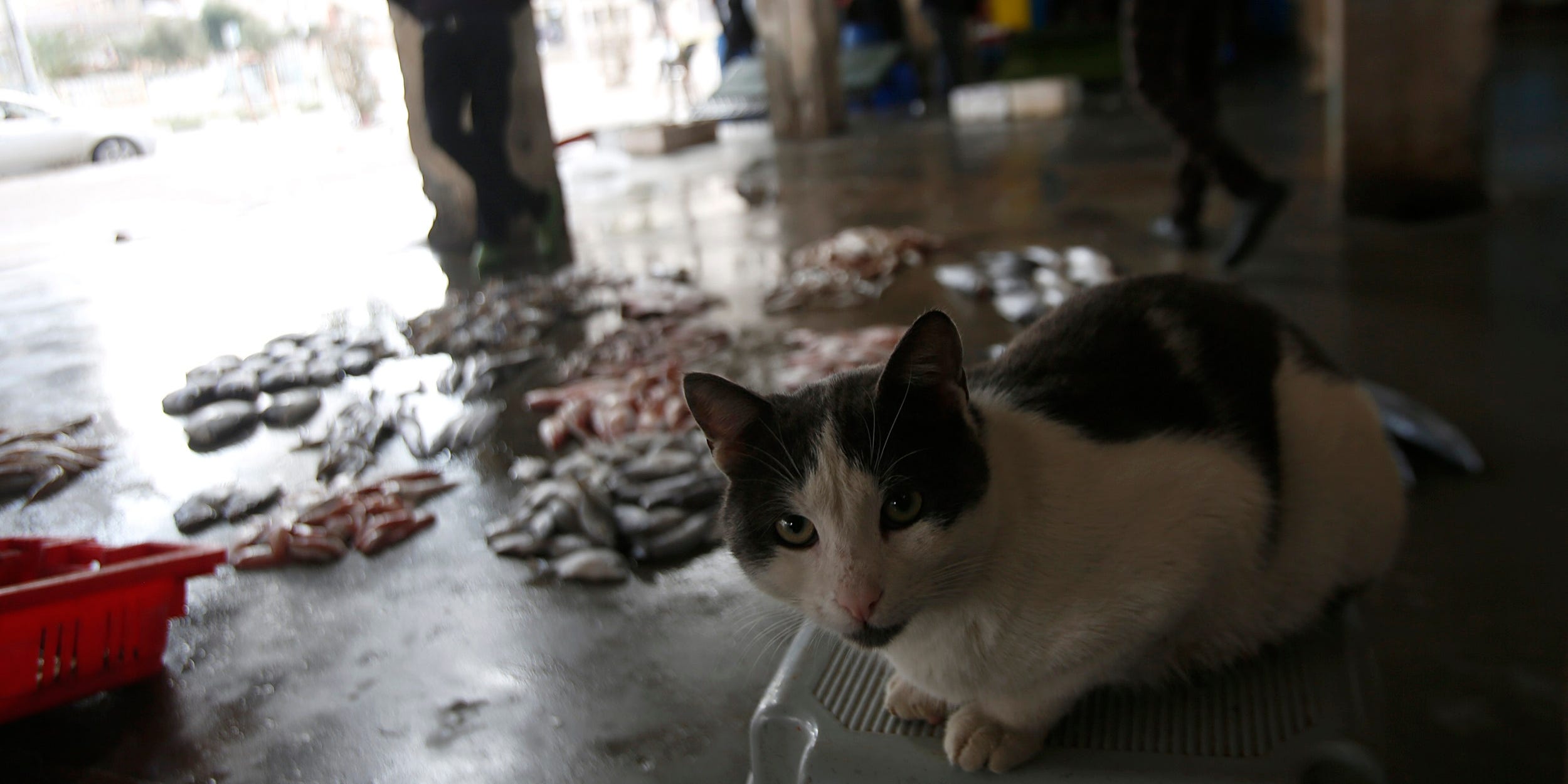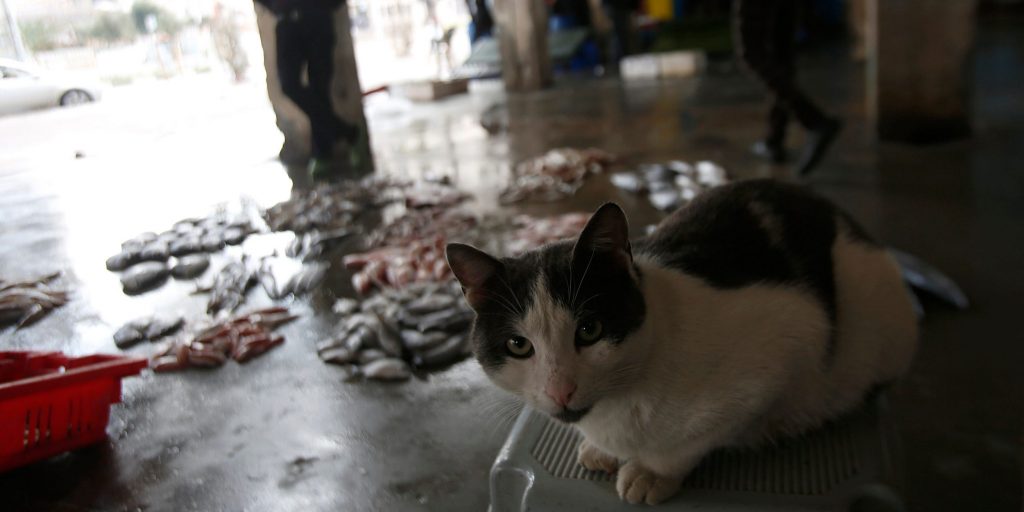
AP Photo/Hatem Moussa
- The war in Gaza was a traumatizing event for humans as well as animals, said resident Saeed Al Err.
- Saeed runs Gaza's Sulala Animal Rescue, caring for dogs and cats, as well as a horse and donkey.
- "They are poor souls who have a very difficult life in Gaza," he told Insider
- See more stories on Insider's business page.
Like everyone in Gaza, Saeed Al Err had a plan for what he would do if the Israeli military was going to bomb his neighborhood. The difference is that some members of his family have four legs.
"My family and I practiced how we would take the cats with us when we leave," he said in an interview. There are 40 of them. "We have four bigger boxes to put the smaller boxes in," he said. "This way we can get them out of the house fast."
Leaving them behind, he added, "is not an option."
A former civil servant approaching 50, Saaed was forced into early retirement when Hamas took over the Gaza Strip in 2006 (his employer, the Palestinian Authority, offered to keep paying his salary only if he agreed not to work for the militant group). He has, since then, dedicated himself to protecting Gaza's population of abused and neglected animals.
"I started my work 15 years ago by going out on tours, putting food in the street for stray cats and dogs," he said. "I would help sick and wounded animals when they came across my path."
He developed a reputation - soon, people were coming to him with animals who needed help. That led to him founding Gaza's Sulala Animal Rescue. In addition to the 40 cats he keeps at home, he oversees a shelter that's now home to 200 dogs. It also had a horse and a donkey, but both were killed by shrapnel from recent Israeli airstrikes.
"It is impossible for me to refuse any cases," he explained. "I cannot refuse a dog in need and leave him on the street."
There are a lot of dogs and cats on the streets. As with the territory's human population, many of them are traumatized by years of violence and deprivation.
"They are poor souls who have a very difficult life in Gaza," Saeed told Insider. "I think they have more love and kindness in them than humans. ... I don't want them to be in the street where they can get abused or hit by cars or shot. They get mistreated."
Saeed is not alone in caring for animals in Gaza. In addition to his 40 cats, another 30 are in the homes of volunteers who assist at his shelter, which primarily runs on donations from those outside the territory - and still not really enough to cover all the costs. Pet shops and animal clinics also let him obtain food and care for the animals without having to pay up front.
Still, in Gaza as elsewhere, many people "don't see that they are creatures who experience pain and happiness like them," he said. "Then imagine how bad they have it during wartime."
"And we always have wars," he said.
-Sulala Animal Rescue (@SulalaSociety) May 20, 2021
While Israeli authorities asserted their war was on Hamas - which had been firing rockets indiscriminately at Israel, a violation of international law - it is not possible to limit a war's impact to those fighting it. And it wasn't.
Home to more than 2 million people, Gaza is more densely populated than either London or Shanghai. During the recent bombing campaign, 212 Palestinians were killed by Israeli fire, including at least 61 children. According to Amnesty International, the Israeli campaign included the targeting of residential buildings, without warning, that would appear to have no military value - a pattern of attacks that killed civilians and "may amount to war crimes."
Saeed had an evacuation plan for his cats not because Israel would have any reason to target his home, but because in Gaza any residence could potentially be adjacent to an airstrike. "If they want to kill my neighbor, I am in danger as well," he said.
So, too, are the animals.
War "terrorizes them," Saeed said. "They are running away from their owners, panicking. We are currently taking care of a dog who jumped from the sixth floor of a building because he was scared by the bombs," suffering a spinal fracture.
"War is horror," he said, "for both animals and humans."
Have a news tip? Email this reporter: [email protected]
Dit artikel is oorspronkelijk verschenen op z24.nl

